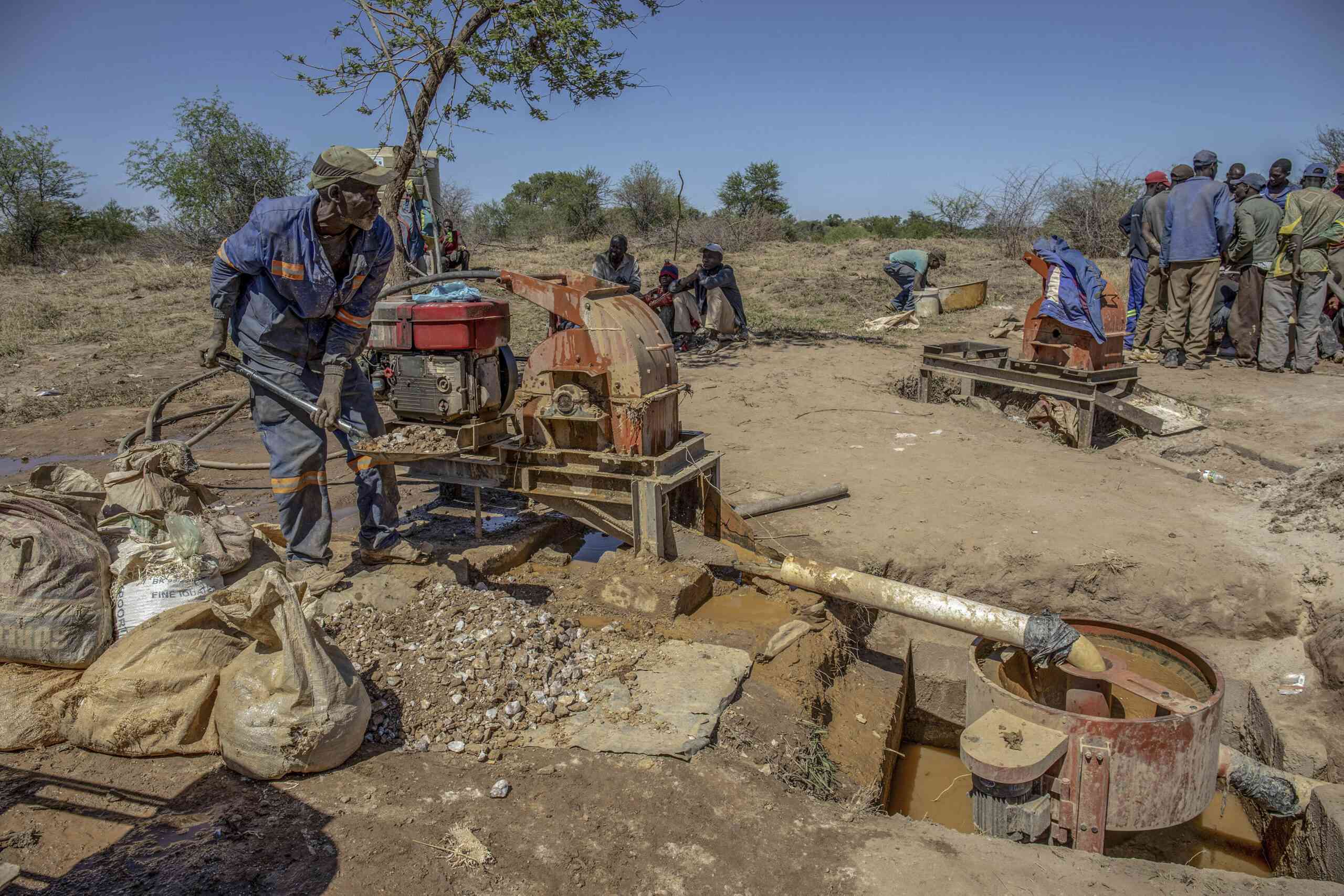
Zimbabwe's dwindling gold deliveries to Fidelity Gold Refinery (FGR) are being caused by undeclared bullion from artisanal and small-scale miners (ASM), according to a recently published report.
According to the report produced by SWISSAID, an estimated 80% of ASM gold produced across Africa is not declared, translating to between 321 and 474 tonnes annually.
The report, titled On the Trail of African Gold: Quantifying Production and Trade to Combat Illicit Flows, focuses on how Africa “is the world’s main gold-producing continent” and “how the yellow metal plays an immense and contrasting role there”.
This undeclared gold, valued at US$23,7 billion to US$35 billion (as of May 1, 2024), exposes the loopholes in the gold supply chain across the continent.
“Each year, between 321 tonnes and 474 tonnes of gold produced through artisanal and small-scale mining (ASM) is not declared in Africa (corresponding to a value of between US$23,7 billion and US$35 billion at the price of gold on 1 May 2024).
“In 2022, this represented between 72% and 80% of total ASM gold production or between 32% and 41% of total gold production (artisanal or small-scale and industrial or semi-industrial) on the African continent.
“In nine African countries, the estimated production of undeclared ASM gold exceeds 20 tonnes per year,” read the SWISSAID report.
SWISSAID is an assistance, advocacy, and development organisation established in Switzerland.
- Mthuli dives into Zanu PF politics headlong
- Driver ‘seriously injured’ after being run over three times by own car
- Gold deliveries to hit 40t
- HealthTalk: Zim has potential to deliver quality health
Keep Reading
Small-scale miners' deliveries to Fidelity Gold Refineries fell by 23% to four tonnes in the first four months of 2024, compared to 5,2 tonnes at the same time in 2023, this accounts for 48% of the total gold haul given to Fidelity, down from 60% the previous year.
Gold is Zimbabwe's top export, followed by platinum and tobacco, mining in general accounts for more than 75% of the country's exports.
According to the SWISSAID report, in 2022 undeclared ASM gold constituted a staggering 72% to 80% of Africa's total ASM production, further impacting official figures, and this translates to 32% to 41% of all African gold (including industrial mining) going unreported.
The report highlighted a concerning trend as undeclared gold finds legitimacy upon entering international markets.
This essentially launders the gold, masking its origins and potentially facilitating illegal activities.
“In 2022, 66,5% (405 tonnes) of the gold imported into the UAE from Africa was smuggled out of African countries, the vast majority of African gold that is not declared at the production stage or for export is declared for import into non-African countries.
“In other words, gold originating from clandestine African circuits acquires a legal existence when it enters the international market (in particular via the UAE).
“A comparison with import data shows that undeclared ASM gold production in Africa is very likely to reach, or even exceed, the high end of the range of estimates calculated by SWISSAID, i.e. 474 tonnes,” read the report.
Without proper measures to address undeclared ASM gold, efforts to improve transparency and ensure ethical sourcing in the gold sector will continue to face hurdles.
Increased collaboration between governments, regulators, and artisanal miners is crucial to curb this undercurrent and ensure Zimbabwe, and Africa as a whole, benefits fully from its gold resources.
Zimbabwe is considering an investigation into the small-scale gold mining sub-sector to discover the causes of the unexpected decline in producer deliveries, amid concerns about a revival of smuggling.
According to the research, in 2022, approximately 24 000kg of gold produced by artisanal and small-scale miners (ASM) were declared, compared to an estimated 78 000kg that went undeclared.
Zimbabwe placed in second place to Mali out of 41 countries observed on the continent.
However, in the Sadc area, records showed that Zimbabwe led the pack on undeclared gold, with South Africa coming in second at almost 25000kg.
Last year, Zimbabwe Miners Federation (ZMF) President Henrietta Rushwaya was convicted of attempting to smuggle 6kg of gold out of Zimbabwe via Robert Gabriel Mugabe International Airport in 2020.
Rushwaya was charged with attempting to smuggle 6kg of gold worth US$333 042 out of Zimbabwe on October 20, 2020, however, denied the claims, alleging that she unintentionally picked up the suitcase containing the gold while rushing to the airport.
According to the report UAE was under-declaring import data, with the destination country reporting that it received almost 350 000kg of gold from Zimbabwe.
“Twelve African countries are involved in smuggling more than 20 tonnes of gold a year, most gold smuggling in Africa takes place in Mali, Ghana and Zimbabwe, gold smuggling in Africa more than doubled between 2012 and 2022.”







